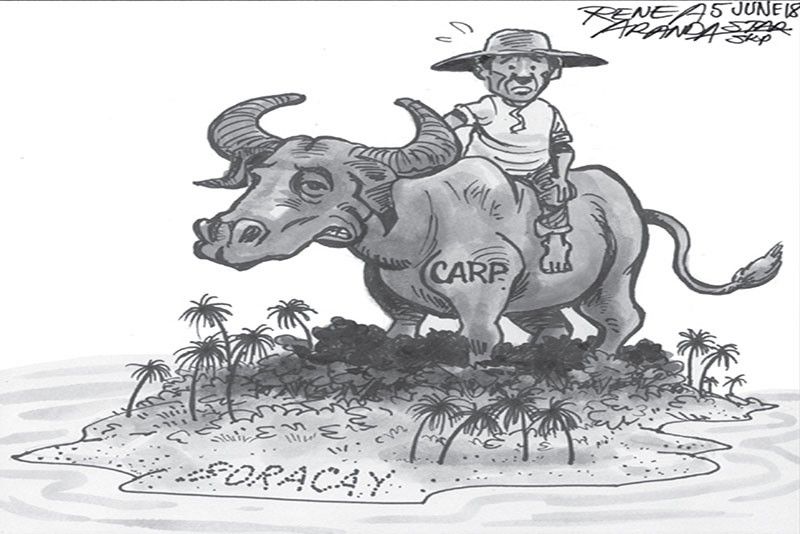EDITORIAL – Land reform in Boracay

Agrarian reform sounds good in a developing, largely agricultural country. A 2006 presidential proclamation declared the entire Boracay as public land, with large tracts classified as agricultural and the rest protected forestland. So placing those tracts under land reform, as President Duterte has ordered, should be a welcome move.
The problem has always been in implementing agrarian reform. Many of the biggest landowners in the country belong to political clans. After the collapse of the Marcos dictatorship in 1986, landowning legislators made sure their properties would be exempted from being parceled out even as they passed the Comprehensive Agrarian Reform Program.
CARP beneficiaries are among the most impoverished in the country, and they need substantial support to make land reform work. Rice farming in particular requires abundant irrigation, ample fertilizer and pest control, affordable and accessible drying and milling facilities, farm-to-market roads and effective marketing. CARP suffered from the inadequacy of these farm support services, aggravated by the plunder of fertilizer funds by politicians in the 2004 election campaign.
There is another problem that must be confronted in placing Boracay under agrarian reform: would the beneficiaries want to farm? People normally pick livelihood sources with one overriding consideration: profit. And the most profitable industry in Boracay is the one for which the island has gained international renown: tourism.
What can you plant on a tiny, mountainous island in the tropics? “Carabao” mango, coffee, cacao, ornamental plants, vegetables and herbs might work. Can profits from farming these crops match earnings from tourism? They might – if the beneficiaries can organize themselves to set up farm tourism destinations. Because let’s face it: the Philippines has 7,100 islands, but Boracay’s powdery white sand is unique, making it the country’s top tourist destination. Even farming on the island will benefit if it is tourism-oriented. Making farm tourism work, however, will require even more support from the government than ordinary CARP.
There is another issue that the government must confront: how to maintain investor confidence. Economic managers will insist that it’s all in the imagination of doomsayers, but actions and decision-making in Boracay have smacked of arbitrariness in dealing with private business.
The country’s tourism infrastructure is inadequate. Addressing this need calls for private sector investments. But how does the government reassure investors that their money is safe in this country when something akin to rash nationalization appears to be underway in Boracay?
Done properly, agrarian reform eases poverty and promotes inclusive growth. In Boracay, the program will need an additional push and exceptional fine-tuning. Otherwise, it could turn into a joke, or an unmitigated disaster.
- Latest
- Trending
























